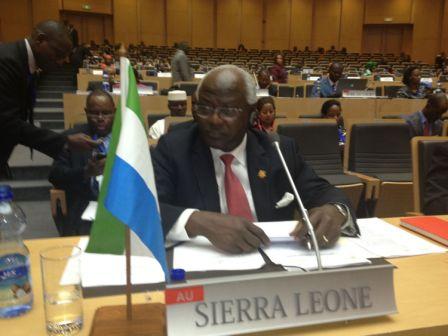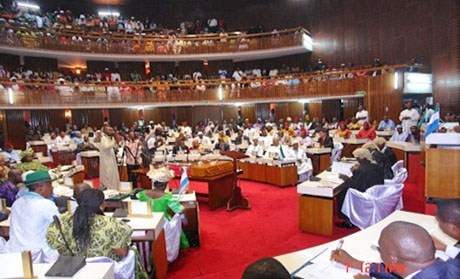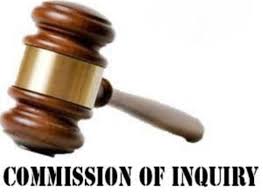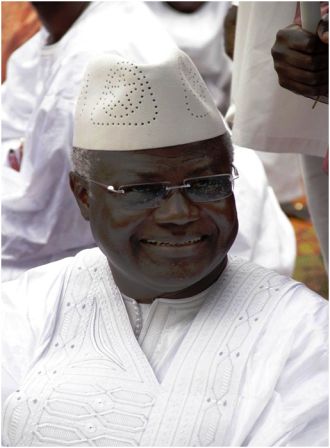President Koroma: Africa’s New Champion
“Sierra Leone’s President Ernest Bai Koroma on Monday 24th June 2013 told a group of African diplomats, including Ambassadors that ‘Africa is the Future of the World’. He made these statements at a meeting with the African Diplomatic Caucus in Beijing shortly on arrival in the Chinese capital (Africa is the Future of the World”…President Koroma Tells Diplomats in Beijing) n Jarrah Kawusu-Konte & John Baimba Sesay
Africa needs a ‘new Champion’. A champion who can articulate the views, and face the challenges, of ‘the new pro-business….economic-growth Africa’: the mantle of ‘Africa leadership’ is falling on President Koroma. President Koroma has grown increasingly resonant, with obvious wisdom in every word he utters; burnishing his ‘natural photogenic charisma’, glossing his film star-like smile. It has helped his leadership credentials that he is stimulating impressive economic growth in his country which is being hailed by the World Bank/IMF, and, being deferred to on African affairs by the most powerful leader on earth, US President Barrack Obama. It is significant that President Koroma spoke in China recently about “Africa”- which includes tiny Sierra Leone, of course. It could be that President Koroma, awed by the sheer size of China (about 9,000,000 square kilometres! Put that against Sierra Leone’s 71,000 square kilometres geographical space); astounded by the Chinese trillions of dollars economy , and overwhelmed by the 1.3 billion Chinese people (Pit Sierra Leone’s about 6million people against China’s 1 billion plus population), is reminding Africa, as Africa celebrates the 50th Anniversary of the African Union, that the only salvation for Africa in being competitive in the global arena (more like a global war field, really) would be to tighten the bonds of meaningful unity. Can President Koroma be bold enough to echo, or, amplify, Ghana’s President Kwame Nkrumah?
We did not listen to Kwame Nkrumah!!
Kwame Nkrumah’s speech to the just budded OAU in the conference held in Ethiopia on 24th May, 1963, has been published in the May 2013 edition of NEW AFRICAN magazine. Excerpt reads: “…Our objective is African union now….. We must unite now or perish. …Our people supported us in our fight for independence because they believed that African governments could cure the ills of the past in a way which could never be accomplished under colonial rule. If, therefore, now that we are independent we allow the same conditions to exist that existed in colonial days, all the resentment which overthrew colonialism will be mobilized against us… We cannot afford not to cut down the overgrown bush of outmoded attitudes that obstruct our path to the modern open road of the widest and earliest achievement of economic independence and the raising of the lives of our people to the highest level….What use to the farmer is education and mechanization, what use is even capital for development, unless we can ensure for him a fair price and a ready market? … We will be mocking the hopes of our people if we show the slightest hesitation or delay in tackling realistically this question of African unity….”
Nkrumah was not listened to. Of course!! Africans forgot that the boundaries that made them ‘Nigerians….Kenyans….Ivorians….Sierra Leoneans…’ were made by Europeans who wanted to perpetuate the Atlantic Slave Trade in a benign form.
The Partition of Africa in 1884/1885
The Partition of Africa began in earnest with the Berlin Conference of 1884-1885, and was the cause of most of Africa’s borders today. This conference was called by the then German Chancellor, Otto Von Bismarck. The aim of the ‘Blood and Iron’ Chancellor was to settle how European countries would claim colonial land in Africa and to avoid a war among European nations over African territory.
All the major European States were invited to the conference. Germany, France, Great Britain, Netherlands, Belgium, Portugal, and Spain were all considered to have a future role in the imperial partition of Africa. The racist perception that rationalized and sustained Atlantic Slave Trade was dominant in the conference – that Europeans believed Africans were sub-humans, and their thoughts and feelings should not be taken into consideration among ‘normal human beings. Not a single European was ‘Christian’ enough to even mildly stir the conscience of the ‘Christian leaders’ who assembled to dismember an entire continent of Africans. .
Africans have clung to their midget political status while the rest of the world that are not already giant nations (US, Russia, China) have grouped themselves into major political and economic blocks (European Union, NAFTA, OPEC, etc) with economies that are valued at trillions of dollars.
The 21st Century Scramble for Africa
In the 21st Century, there appears to be another ‘Scramble for Africa’ – for Africa’s petroleum, iron ore….etc. Some of the biggest retailers in the world – like Coke; Microsoft, etc. – see great opportunity in the about a billion people who can be consumers in Africa. Vijay Mahajan, author of Africa Rising: How 900 Million Consumers Offer More Than You Think (Wharton School Publishing) postulates that the GDP of Africa – that is, looking at the continent as if it were a sort of United States of Africa – is actually higher than India’s. If all the countries in Africa combined forces, they would be the 10th largest economy in the world, one notch above India, and ahead of the other big emerging economies, Brazil and Russia.
Mahajan highlights another sheen in Africa today: Africa has a young population. A little more than 40% of the population is younger than 15, compared with about 30% in India.
There are an estimated 735 million mobile subscribers in Africa who use their phone for various things such as banking, paying bill etc. A movement by experts, entrepreneurs and innovators called M-Health also popularly known as mobile health has taken advantage of these statistics by maximizing the use of mobile phone technology to help save lives.
The Chinese are Here: New Colonialists?
The Chinese have marched into the ‘new Africa’ boldly. China has over 800 Chinese companies with 750,000 Chinese nationals operating in 49 out of 53 African countries. Since the 1990′s, the Chinese have invested billions of dollars in African infrastructure, resource extraction, and other business ventures.. Trade between Africa and China went from $10 billion in the 1980s, to $100 billion in 2008. This was a rapid increase from $55 billion in 2006. By 2008, China exported $50.8 billion worth of goods to Africa, which was a rise of 36% from the previous year . The import of goods from Africa rose 54% or $56 billion . In Sierra Leone, Chinese companies have invested over a billion dollars in the giant African Minerals iron ore company. About a month ago, there was an announcement that billions of dollars more Chinese investments are in the pipeline for Sierra Leone. And it does appear as if the Americans and Europeans are worried.
Collin Spears, BFPR Chief Foreign Policy Correspondent in Washington, D.C., US, writes that ‘In 2005, the Western media began to express “concern” with the increasing Chinese presence in Sub-Sahara Africa (Africa). During this period, many foreign policy observers began to promote the idea that China is plotting to take over Africa in some neo-colonialist attempt to gain unlimited access to natural resources. For example, Karin Kortmann, a German parliamentary state secretary stated in November of 2006, “our African partners really have to watch out that they will not be facing a new process of colonization”. The same year, Lord Chancellor of Great Britain, Jack Straw, made similar allegations “Most of what China has been doing in Africa today is what we did in Africa 150 years ago”. This Sinophobic boilerplate is hyperbole, but the narrative suggests that the average African is impotent and their leaders are all iniquitous or ineffectual.
Sule Lamido, former Governor of the Central Bank of Nigeria, recently expresses this ‘Chinese fear’: ‘In much of Africa, they (the Chinese) have set up huge mining operations. They have also built infrastructure. But, with exceptions, they have done so using equipment and labour imported from home, without transferring skills to local communities.
‘So China takes our primary goods and sells us manufactured ones. This was also the essence of colonialism. The British went to Africa and India to secure raw materials and markets. Africa is now willingly opening itself up to a new form of imperialism’.
Dambisa: ‘Chinese colonialism threat of Africa is absurd’
Celebrated Zambian economist, Dambisa Moyo (she is an outspoken critic of international aid, arguing for years that foreign handouts stifle Africa’s development, perpetuate corruption and hinder the continent’s growth. Her book ‘Dead Aid’ made her a New York Times bestselling author in 2009) says fears as raised by Sule Lamido are “absurd”. Her reason, stated in a CNN interview, is that (China’s population) of “1.3 billion people” has only “ 300 million people that live at the level of Western living style. So they’ve got a billion people to move out of poverty. The notion that they would be spending their time trying to colonize other places is just, frankly, absurd”
The sexy-looking intellectual says: “I’m not saying that China should be given a red carpet, carte blanche, to come into Africa or, indeed, anywhere in the world, and do what they like. We do need the investment, we need job creation and we do need actual trade in these places. But I think what’s really essential is to focus on what China can do for Africa, as well as what Africa can do for China. And I think that discussion is not had as objectively as it should be…..Ultimately, the responsibility of how China engages in Africa is really at the domain of the African governments. We would not be worried about the risks of neo-colonialism or abuse, environmental abuse and labor issues, if we trusted the African governments to do the right thing.
Africa should be cognizant of its history while not being burdened by that history to take advantage of emerging opportunities. The risk should not be belied!! There must be clever blend of savvy international relations, economics, and, environmental concerns. It is not enough just to ‘go with another cap in hand’ begging the Chinese for investments. There should be ‘Chinese Think Tanks’ in Africa. This where President Koroma can take the advantage to be Africa’s new Champion – he has what it takes to ‘speak loudly and wisely’ for Africa and be listened to; and, to make a difference.
The Oswald Hanciles Column
Stay with Sierra Express Media, for your trusted place in news!
© 2013, https:. All rights reserved.






